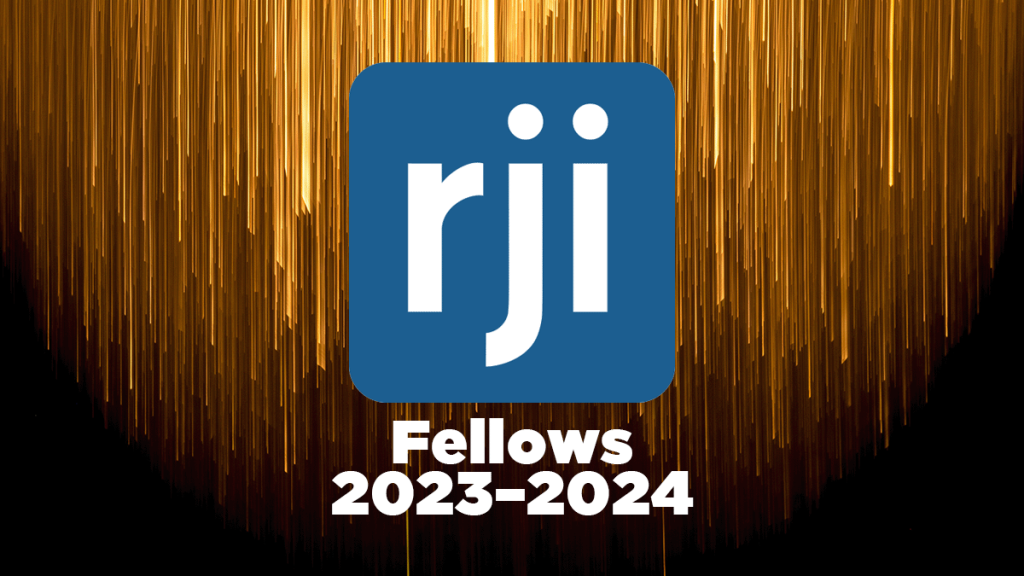
RJI Fellows to present their projects in free public webinar
Fellows will showcase open-source tools and guides to help newsrooms cover their communities accurately and responsibly
The Reynolds Journalism Institute’s 2023-2024 cohort of RJI Fellows will present their work in a public webinar this Friday, March 15. Registration is free for the virtual event, in which the fellows will discuss a variety of open-source digital tools they have designed to help newsrooms engage and represent their communities.
Though the annual RJI Fellowship lasts for eight months, RJI Executive Director Randy Picht emphasized that the projects are designed to enter the industry ecosystem to be used and iterated upon for many years.
“In journalism, a valuable and practical tool isn’t just one that has immediate use, though that is important,” Picht said. “The work done over the past eight months will continue to help journalists and news organizations implement the trainings, guides and other resources in ways that work best for them far into the future.”
The work done over the past eight months will continue to help journalists and news organizations implement the trainings, guides and other resources in ways that work best for them far into the future.
Randy Picht, RJI executive director
“I’m eager for journalists to see what the fellows have built and how they can utilize these vital resources in their newsrooms,” added Kat Duncan, director of innovation at RJI. “This is a chance to see a demo of each resource and get questions answered by the fellows directly.”
Ariel Zych, director of audience at Science Friday, is leaning into that element of public participation. Her sensitivity toolkit has launched but will continue to incorporate feedback for the next several months as she builds toward a screen reader-friendly version. The toolkit covers everything from budgetary concerns to the nuances of different roles that a sensitivity editor can fill, highlighting a clear path for newsrooms to represent a variety of identities in their community more fairly and accurately.
But as much as Zych hopes her work will provide learning opportunities for others, building the sensitivity toolkit with the support of the other fellows was a learning experience unto itself.
“The breadth of perspective, skill and experience among other members of this year’s cohort was one of the most valuable aspects of the program,” Zych said. “Every single member of this cohort provided helpful feedback and insight into one another’s projects.”
The breadth of perspective, skill and experience among other members of this year’s cohort was one of the most valuable aspects of the program. Every single member of this cohort provided helpful feedback and insight into one another’s projects.
Ariel Zych
Celia Wu, the managing director of Global Press News Services, echoed these sentiments. Wu developed a version of the Global Press style guide in the form of a Google Chrome extension, allowing journalists to quickly and easily access information on how to portray a diverse array of people, cultures and issues with dignity and precision. In addition, she created a toolkit to help other organizations do something similar with their own style guides.
“I learned a lot about how to think of product development and product management,” Wu said, noting that support from the cohort of fellows came not just as feedback but as inspiration and motivation. “So much innovation and a passion shared by all to lift up the field we all made a strong commitment to.”
Both Zych and Wu refer to their toolkits as “living documents,” a nod to the crucial role of iteration and adaptation in not just improving their work but spurring its use in other news organizations throughout the industry.
To that end, each fellow published articles on rjionline.org throughout the fellowship period that delved into lessons learned and tips to help others implement similar programs and initiatives. The upcoming webinar will serve as the culmination of that process, offering a convenient introduction to resources that are freely available for the public to use and adapt as needed.
Meet the fellows
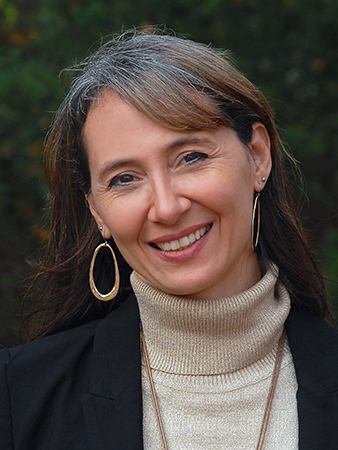
Maria Arce built ARENA, a toolkit for journalists to learn to work with and become radio amateurs — also known as ham radio operators — to assist in times of natural disasters.
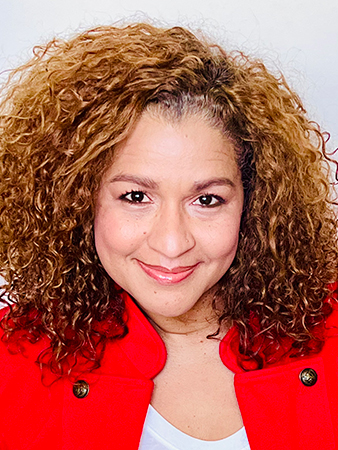
Tamoa Calzadilla built the bilingual Guide for Journalists Covering Latino and Spanish-Speaking Communities. This practical resource helps journalists improve their reporting and better identify and counter mis/disinformation in Spanish that specifically targets these communities.
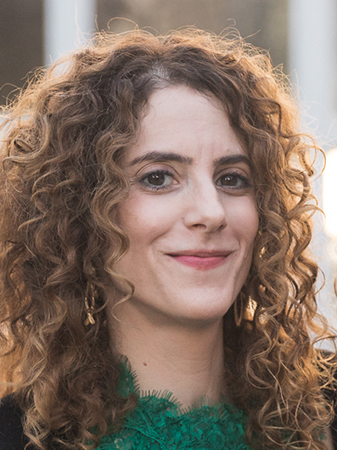
Stacy Feldman built the Pop-up Community Newsroom Toolkit to help small local news organizations create pop-up newsrooms with — and for — their communities. This tool helps news organizations increase their ambition and impact, while providing emerging journalists or non-journalists the opportunity to be news shapers and make a difference in their cities and towns.
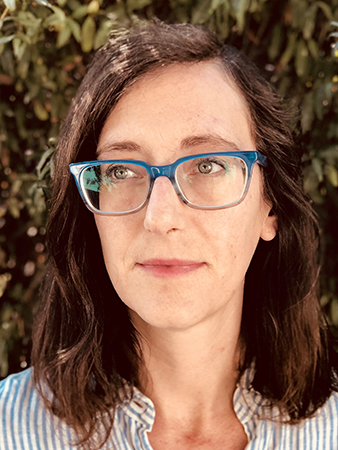
Kate Maxwell built the Local News Go Bag platform, which helps prepare and support local newsrooms, journalists, and communities facing and reporting on natural and environmental disasters.
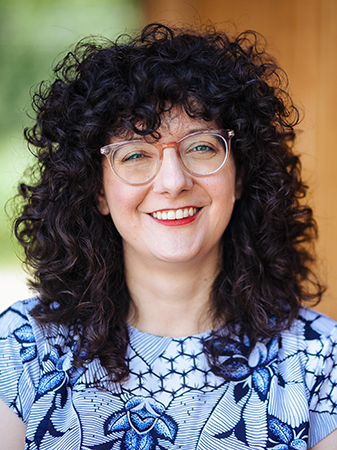
Jennifer Mizgata created the Building News Culture training, which provides actionable advice, templates and case studies for organizational policies, practices and programs which helps news leaders build more sustainable and caring work cultures.
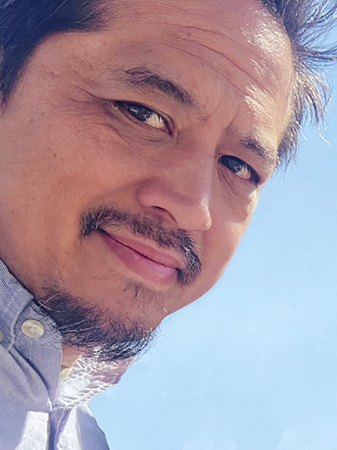
Arjuna Soriano built the Community Sports Reporting toolkit and playbook. It provides step by step instructions for newsrooms to work with community reporters through SMS communication to produce high-value high school and community league sports coverage with limited resources.
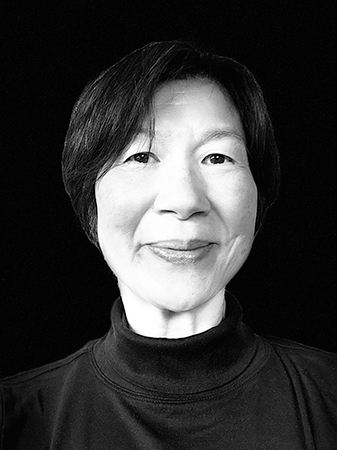
Celia Wu built the Global Press Style Guide Google Chrome extension and a how-to guide that shows others how to build their own Chrome extension version of a style guide.
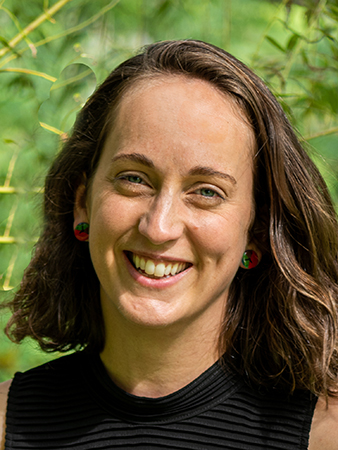
Ariel Zych built the Getting Started with Sensitivity Professionals toolkit to assist newsrooms in sourcing, selecting, compensating, and working with editors whose responsibility is to prevent the marginalization of specific communities and identities.

Comments